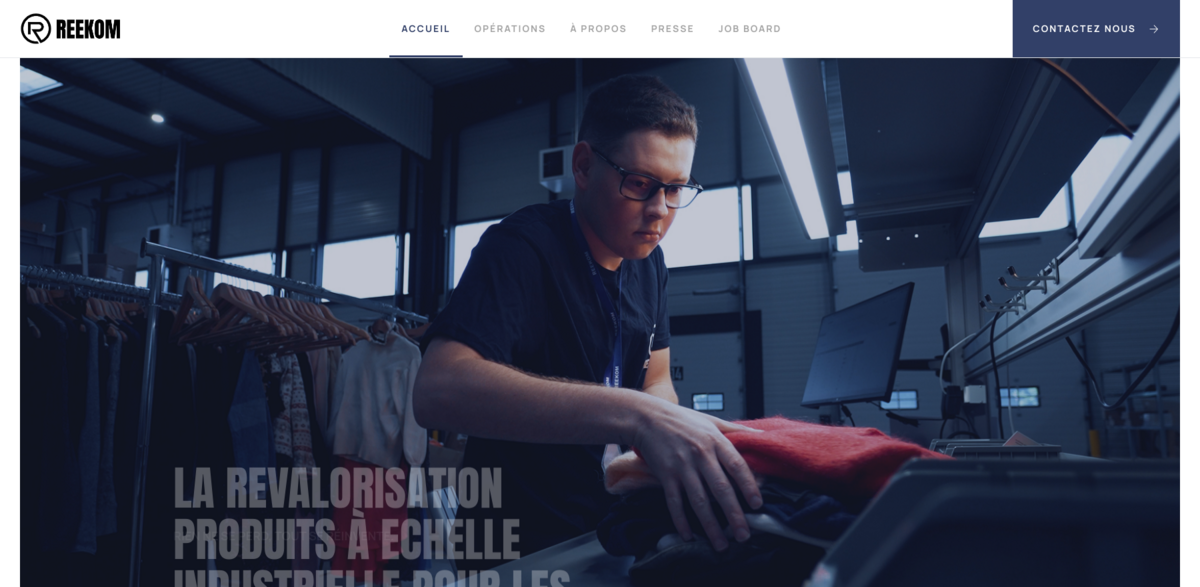What Is Reekom All About?
Reekom is your go-to solution for taking the turn towards revaluation. It’s an innovative operational approach designed specifically for the second-hand industry, helping brands and retailers launch profitable re-commerce projects. Think of it as a full-circle logistics and operational system dedicated 100% to circular operations. From collection and identification to washing, ironing, disinfection, photo-taking, maintenance, and repair — Reekom handles it all. This means clothes, furniture, toys, outdoor gear, and more get a second, third, even fourth life. And the best part? It’s all done with a sharp eye on profitability and sustainability.
The Main Benefit: Economic Profitability and More
Reekom doesn’t just recycle products; it recreates value from what already exists. Here’s why it’s a game changer:
- Incremental revenue generated profitably by revaluating products like second-hand items, defective returns, prototypes, and photo shoot samples.
- Average revaluation time of less than 5 days from receipt to stock availability — quick turnaround means faster sales.
- Co-construction of the economic equation with clients to ensure profitable activity development.
- Industrial-scale revaluation process that’s transparent and measurable.
- Supports compliance with regulations like the AGEC law, which bans product destruction.
How Reekom Works: The Circular Operational Chain
The process is straightforward but thorough. It’s a six-step journey that gives products a second life, tailored to each client’s needs:
- Collection & Reception: Products come in from various sources — second-hand collections, defective returns, prototypes, photo shoot items — all transported via shared or dedicated means.
- Inspection & Qualification: Rigorous quality control based on brand, condition, season, defects, and client specs determines the best revaluation path.
- Revaluation: Expert teams and industrial facilities breathe new life into products through laundry, repairs (textile, leather, shoemaking), and professional photo shoots.
- Storage & Re-packaging: Products are stored carefully — on shelves, hangers, pallets — and repackaged, ready for resale.
- Follow-up & Data Management: Each product is uniquely identified and tracked, with detailed reporting on environmental performance.
- Order Preparation & Shipping: Integration with resale channels (both physical and digital) allows seamless order retrieval, preparation, and shipping, whether B2C or B2B.
Environmental Commitment: Doing Good While Doing Business
Choosing revaluation with Reekom means limiting environmental impact and ticking all the regulatory boxes. The process aligns with the AGEC law, which prevents product destruction, and embraces a transparent, measurable approach to sustainability. By extending the lifespan of products, Reekom helps reduce waste, CO2 emissions, water consumption, and the extraction of raw materials. It’s a win-win: better for the planet and better for business.
Boosting Brand Image Through Revaluation
Reekom turns what might seem like a financial or operational headache into a powerful communication tool. Customers today expect brands to walk the talk on sustainability. By revaluating products, companies can showcase real, concrete commitments to extending product life and reducing environmental impact. This not only strengthens CSR credibility but also differentiates brands in a crowded marketplace. It’s about transforming constraints into opportunities — and that’s a story customers want to hear.
Project Impact: Linking to Sustainable Development Goals (SDGs)
- SDG 12: Responsible Consumption and Production — promoting circular economy and reducing waste.
- SDG 13: Climate Action — lowering CO2 emissions through product revaluation.
- SDG 8: Decent Work and Economic Growth — creating profitable, sustainable business models.
- SDG 9: Industry, Innovation, and Infrastructure — leveraging industrial-scale refurbishment and logistics.
- SDG 15: Life on Land — reducing resource extraction and environmental degradation.
The Story Behind Reekom: Towards Re-Commerce
Reekom was born from the need to solve a long-ignored problem: managing first-hand products that require refurbishment before resale. The founders envisioned a circular, industrial, and profitable solution that could handle the operational challenges efficiently. Every product entrusted to Reekom embarks on a carefully designed journey — inspected, cleaned, repaired, reconditioned, and digitally inventoried — all tailored to client needs. The result? A fast, effective second life for products, with a positive impact on both business and the environment.


















